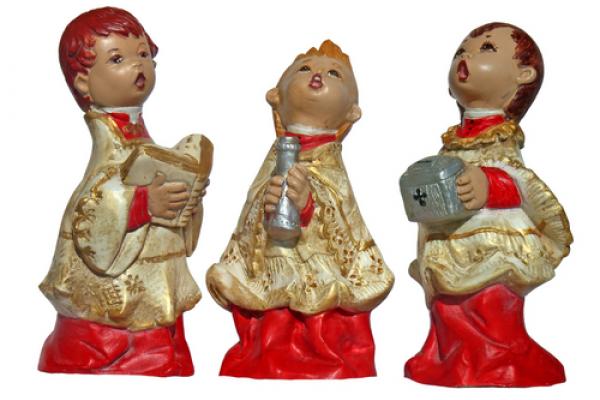Should the market have so much control over liturgical music?
There is nothing new to this question. Not at all. Now, however, there may be much that is new in discoverng the answer.
Once upon a time in the European West, liturgical music was created by musicians who were supported by the patronage of a noble class.* Byrd, Tallis, you know the gang.
Before then it was the monastic composer (Hildegard, et al) who seemed to rule the charts with their chant. Musicians were supported by the Church and the Wealthy in some way and thus created music for worship.
The old markets, of course, have given way to new markets over the centuries, but throughout the history of the Western marketplace, markets (and the people they represent) have had tremendous say in what music we deem as sacred.
Now, in our post-colonial, neoliberal marketplace, how shall we choose liturgical music?
How shall we support musicians?
Do we support musicians?
Are corporations the new Nobles? The new Monastery?
Just how democratic is the neoliberal marketplace?
A few days ago I asked if music were ethics. A couple of people commented. Good stuff abounds there. Check it out. One response has me thinking about an assumed ethical neutrality to the practice of making music. I get the point the commentor was making. I agree with it to a certain degree. But then I think about the ethics of the marketplace and wonder...Just how are Christian ethics embodied in the current musical marketplace? Is making music and marketing music ethically neutral?
It's a question worth considering. The Christian Music Industry was/is a multi-million (billion?) dollar industry. How has that money been allocated? Who has benefited? How have the musicians, the composers, been reimbursed for their time and talent? Sufficiently? As the American mainline develops hymnals featuring the music of the "global south," are we aware of the musicians who created that music? Are we supporting them in any way? Do we know who is giving us our music or is our music essentialized..."Mexican music" or "African music?"
I'm pondering these questions this morning. There has always been a market for music. The nature of that market has changed over the centuries, but there has always been a market. As we continue to discuss new forms of musical expression in our worshiping communities, how might we respond ethically to the realities of the marketplace?
Related Reading:
This is a fine essay about choosing between meaning and money...How do you strike the balance? My question: Is this a particularly "first world" problem? Still, I dig the essay. Thanks, Megan.
*I know that this statement is, in some ways, a falacy. Certainly there were many forms of music created for worship and by people outside the traditional structures of official Church agencies. It is still true to say, however, that some musicians held positions of influence and prestige, and the officials of the church made decisions as to which musical expressions were considered valid or theologically correct.
Tripp Hudgins is a doctoral student in liturgical studies at the Graduate Theological Union in Berkeley, Calif., and associate pastor of First Baptist Church of Palo Alto, Calif. You can read more of his writings on his longtime blog, "Conjectural Navel Gazing; Jesus in Lint Form" at AngloBaptist.org. Follow Tripp on Twitter @AngloBaptist.
Photo credit: JCVStock/Shutterstock.
Got something to say about what you're reading? We value your feedback!
